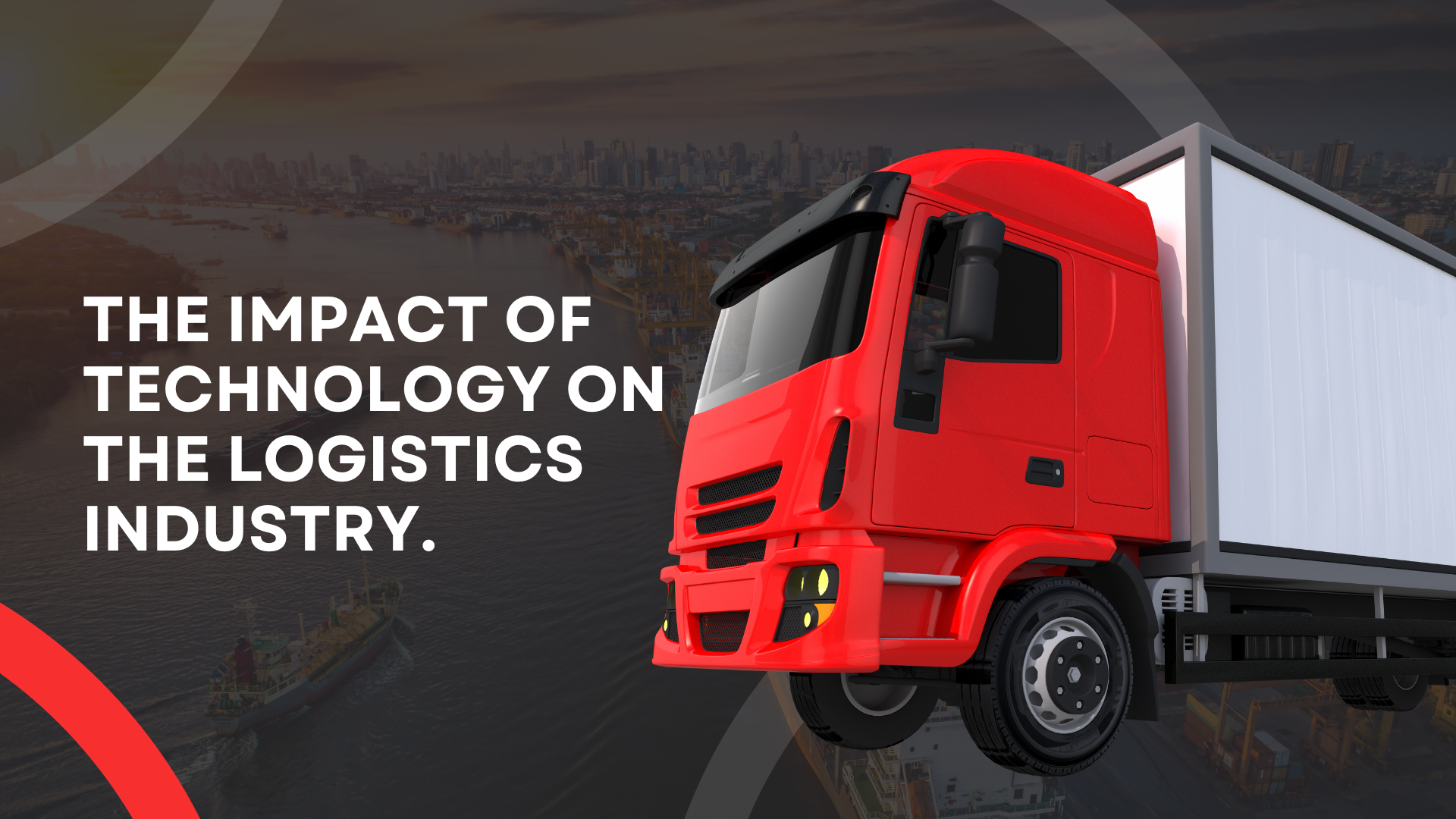1. Introduction
The logistics industry plays a vital role in global trade, ensuring that goods are transported efficiently and effectively from one location to another. In recent years, the industry has experienced significant changes and challenges due to advancements in technology. From the use of artificial intelligence and automation to the implementation of blockchain and data analytics, technology has revolutionized the logistics industry. This comprehensive analysis explores the impact of technology on the logistics industry, examining the benefits, challenges, and future trends. Whether you are a logistics professional or simply interested in understanding the evolving landscape of the industry, this article provides valuable insights and analysis.
2. The evolution of technology in the logistics industry
Over the years, technology has dramatically transformed the logistics industry, revolutionizing the way goods are managed, transported, and delivered. The evolution of technology in this field has been marked by several key advancements, each bringing its own set of benefits and challenges.
One of the earliest technological advancements in logistics was the introduction of barcode scanning and RFID technology, which allowed for better inventory management and tracking. This innovation increased efficiency, reduced errors, and improved overall supply chain visibility.
More recently, the industry has witnessed the rise of automation and robotics. Warehouses are now equipped with autonomous robots that efficiently pick, pack, and sort items, leading to faster order fulfillment and improved accuracy. Additionally, drones are being tested for last-mile deliveries, offering the potential for even faster and more cost-effective shipping.
Another significant development is the adoption of artificial intelligence (AI) and machine learning. These technologies have enabled logistics companies to analyze vast amounts of data and make more accurate predictions about demand, optimize routes, and improve overall operational efficiency.
Furthermore, blockchain technology has emerged as a game-changer in the logistics industry. It provides an immutable and transparent ledger that enhances trust and security in supply chain transactions. By using blockchain, companies can track and authenticate goods, share real-time data with stakeholders, and streamline the complex documentation processes involved in international trade.
As technology continues to advance, new trends are emerging, including the Internet of Things (IoT) and big data analytics. IoT devices, such as sensors and smart tags, allow for real-time monitoring of goods, equipment, and vehicles, enabling proactive maintenance and reducing the risk of disruptions. Big data analytics, on the other hand, enable companies to gain valuable insights from the vast amount of data generated by various sources, helping them optimize their operations and make more informed decisions.
In the next section, we will delve deeper into the benefits and challenges associated with the integration of technology in the logistics industry. Stay tuned for a comprehensive examination of how technology is transforming the way goods are transported and delivered worldwide.
3. Streamlining operations with advanced tracking and monitoring systems
In this modern era, advanced tracking and monitoring systems have become essential tools for streamlining operations in the logistics industry. These systems utilize cutting-edge technology to provide real-time visibility and control over the movement of goods, resulting in increased efficiency and improved customer satisfaction.
One of the key components of these systems is GPS (Global Positioning System) technology. GPS allows logistics companies to track the location of vehicles and shipments accurately. This information is crucial for optimizing routes, managing delivery schedules, and providing accurate estimated arrival times to customers. With GPS, companies can also monitor driver behavior and ensure compliance with safety regulations.
Moreover, IoT (Internet of Things) devices play a significant role in advanced tracking and monitoring systems. These devices, such as sensors and smart tags, gather and transmit valuable data regarding temperature, humidity, vibration, and other environmental factors. By monitoring these conditions in real-time, logistics providers can ensure the integrity of perishable goods, reduce the risk of damage, and proactively respond to any anomalies.
Additionally, advanced tracking and monitoring systems leverage cloud computing and big data analytics. Cloud platforms allow for centralized data storage and seamless integration of information from various sources, enabling logistics companies to have a holistic view of their operations. Big data analytics, on the other hand, help in extracting actionable insights from the enormous amount of data collected. By analyzing this data, logistics providers can optimize their processes, identify bottlenecks, and make data-driven decisions that improve overall efficiency.
Furthermore, these systems often incorporate user-friendly interfaces and mobile applications, providing real-time updates and notifications to customers. With just a few taps on their smartphones, customers can easily track their shipments, receive delivery notifications, and communicate with logistics providers, enhancing transparency and customer satisfaction.
The integration of advanced tracking and monitoring systems has revolutionized the logistics industry, enabling companies to efficiently manage their operations while meeting customer demands. In the following section, we will explore the impact of technology on supply chain management and how it has transformed the way logistics companies handle inventory, warehouse management, and transportation. Stay tuned for an in-depth analysis of these critical areas.
4. Enhancing efficiency through automated processes and artificial intelligence
With the rise of technology, the logistics industry has witnessed a significant shift towards automated processes and the adoption of artificial intelligence (AI) solutions. These advancements have revolutionized the way logistics companies handle inventory management, warehouse operations, and transportation, resulting in increased efficiency and cost savings.
One of the key areas where technology has made a notable impact is inventory management. Traditionally, inventory management relied on manual processes and physical counts, which were time-consuming and prone to human error. However, with the introduction of automated systems and AI algorithms, logistics companies can now accurately track and manage their inventory levels in real-time. This not only improves the accuracy of stock counts but also enables businesses to optimize their inventory levels, reducing carrying costs and minimizing stockouts.
Furthermore, AI-powered algorithms analyze historical sales data, customer preferences, and market trends to generate accurate demand forecasts. By predicting demand patterns, logistics providers can make informed decisions about inventory replenishment, ensuring optimal stock levels and reducing wastage.
In warehouse operations, technology has played a crucial role in streamlining processes and reducing manual labor. Automated systems, such as conveyor belts, robotic arms, and autonomous forklifts, have replaced manual handling, improving efficiency and minimizing the risk of accidents. These systems can efficiently sort, store, and retrieve goods, saving time and resources.
Additionally, AI solutions have been implemented in warehouse management systems to optimize picking and packing processes. AI algorithms analyze order patterns, product dimensions, and warehouse layout to create efficient picking routes, reducing travel time and increasing throughput. Moreover, AI-powered image recognition technology can accurately identify and categorize products, eliminating the need for manual barcode scanning and improving order accuracy.
In the transportation sector, technology has brought significant improvements in route planning and optimization. AI algorithms consider multiple factors, such as traffic conditions, road closures, and delivery windows, to calculate the most efficient routes for drivers. This not only saves time but also reduces fuel consumption and lowers carbon emissions. Furthermore, AI-powered predictive maintenance systems analyze vehicle data to identify potential issues before they occur, ensuring that fleet operations run smoothly and minimize unscheduled downtime.
Overall, the integration of automated processes and AI solutions has transformed the logistics industry by enhancing efficiency and reducing costs. In the next section, we will delve deeper into the impact of technology on last-mile delivery and how innovations such as drones and autonomous vehicles are revolutionizing this aspect of logistics. Stay tuned for a comprehensive analysis of these exciting developments.
5. Leveraging data analytics for better decision-making
In today’s digital age, data is becoming increasingly valuable, and the logistics industry is no exception. With the advancements in technology, logistics companies now have access to vast amounts of data that can be analyzed to gain insights and make better-informed decisions. Data analytics in logistics involves the collection, processing, and interpretation of data to identify patterns, trends, and opportunities.
One of the areas where data analytics has made a significant impact is in demand forecasting. By analyzing historical data, customer behavior, market trends, and external factors, logistics providers can accurately predict future demand patterns. This enables them to optimize their operations, such as adjusting inventory levels, scheduling transportation resources, and improving order fulfillment processes.
Furthermore, data analytics plays a crucial role in route optimization. By analyzing data on traffic patterns, weather conditions, and delivery locations, logistics companies can determine the most efficient routes for their vehicles. This not only results in faster and more reliable deliveries but also helps to minimize fuel consumption and reduce carbon emissions.
Another application of data analytics in logistics is in supply chain visibility. With real-time data tracking and monitoring systems, companies can gain visibility into every step of the supply chain, from the origin of raw materials to the final delivery of goods. This allows them to identify bottlenecks, optimize processes, and make proactive decisions to ensure smooth operations.
Moreover, data analytics helps logistics companies improve their customer service. By analyzing customer feedback, complaints, and preferences, companies can identify areas for improvement and tailor their services to meet customer expectations. This can lead to higher customer satisfaction, increased loyalty, and ultimately, improved business performance.
In conclusion, data analytics is a game-changer in the logistics industry. By leveraging the power of data, logistics companies can make data-driven decisions, optimize operations, improve customer service, and gain a competitive advantage. In the next section, we will explore the role of technology in last-mile delivery and discuss the exciting possibilities that autonomous vehicles and drones bring to the table. Stay tuned for an in-depth analysis of these innovations.
6. The role of technology in improving customer service and satisfaction
In today’s fast-paced world, customer service and satisfaction play a crucial role in the success of any business. The logistics industry is no exception, and technology has been instrumental in transforming the way companies interact with their customers.
One of the key ways technology has improved customer service is through the use of self-service portals and mobile applications. Customers can now track their shipments, receive real-time updates, and even reschedule deliveries, all at their fingertips. This level of convenience not only enhances customer satisfaction but also reduces the burden on customer service teams, allowing them to focus on more complex inquiries.
Another way technology has improved customer service is through the use of chatbots and virtual assistants. These AI-powered tools can handle a wide range of customer inquiries and provide instant responses, ensuring prompt service even outside of regular business hours. By automating routine tasks and providing quick resolutions, companies can save time and resources while still delivering a personalized and efficient customer experience.
Moreover, technology has enabled logistics companies to offer enhanced transparency and communication throughout the entire delivery process. Through real-time updates, customers can stay informed about the status of their shipments, including estimated delivery times and any unforeseen delays. This level of transparency builds trust and confidence in the logistics provider, resulting in a positive customer experience.
Furthermore, technology has facilitated the implementation of efficient returns management processes. With integrated systems and advanced tracking capabilities, customers can easily initiate returns, track the progress of their return shipments, and receive timely refunds or exchanges. This seamless returns experience not only improves customer satisfaction but also builds brand loyalty and encourages repeat purchases.
In conclusion, technology has revolutionized the way logistics companies provide customer service and ensure customer satisfaction. From self-service portals to chatbots and enhanced transparency, customers now have access to real-time information and efficient solutions to their inquiries. In the next blog section, we will explore the emerging trends of artificial intelligence and machine learning in the logistics industry and discuss their potential impact on operations and customer experiences. Stay tuned for an in-depth analysis of these advancements.
7. Overcoming challenges and embracing new opportunities with technology
As technology continues to advance, the logistics industry faces a unique set of challenges and opportunities. Embracing these technological advancements is key to staying competitive and meeting the evolving needs of customers.
One of the challenges that logistics companies face is the need for improved data security. With the rise of digital platforms and the increased reliance on cloud-based systems, protecting sensitive customer information becomes paramount. Companies must invest in robust cybersecurity measures, such as encryption protocols and firewalls, to safeguard customer data and maintain trust.
Another challenge is the integration of new technology with existing systems. Legacy systems and outdated infrastructure can hinder the adoption of new technologies, making it essential for logistics companies to properly assess and upgrade their infrastructure to support emerging tech solutions. This includes investing in the necessary hardware and software, as well as training employees to effectively use and manage these new tools.
Despite these challenges, technology also presents numerous opportunities for the logistics industry. For example, the use of artificial intelligence (AI) and machine learning algorithms can optimize route planning and load optimization, leading to more efficient and cost-effective operations. By leveraging AI-powered predictive analytics, logistics companies can anticipate customer demands, optimize inventory levels, and streamline the supply chain.
Furthermore, the Internet of Things (IoT) enables real-time tracking and monitoring of shipments, providing greater visibility and control over the entire logistics process. Sensors and connected devices can provide data on factors such as temperature, humidity, and location, ensuring the integrity of sensitive goods and allowing for proactive measures to be taken in the event of disruptions.
In addition to these operational benefits, technology also opens up new avenues for collaboration and partnership within the logistics industry. Through digital platforms and marketplaces, logistics companies can easily connect with suppliers, carriers, and other stakeholders, facilitating streamlined communication and collaboration. This can lead to improved efficiency and reduced costs in areas such as procurement, inventory management, and freight forwarding.
In the next blog section, we will delve into the ethical considerations surrounding emerging technologies in the logistics industry. Join us as we explore the impact of automation, robotics, and drones, and discuss how these technologies can be harnessed responsibly while addressing potential concerns. Stay tuned for an insightful discussion on the ethical implications of technology in logistics.
8. Conclusion: Embracing technology for a bright future in logistics
In conclusion, it is clear that technology has had a significant impact on the logistics industry, presenting both challenges and opportunities. To succeed in this rapidly evolving landscape, companies must overcome challenges like data security and system integration, while embracing new technologies to enhance operations and meet customer demands.
The adoption of artificial intelligence, machine learning, and the Internet of Things can revolutionize the logistics industry by optimizing routes, improving inventory management, and enhancing shipment tracking and monitoring. These advancements not only streamline processes but also improve efficiency and reduce costs.
Furthermore, technology opens up new possibilities for collaboration and partnership within the industry. Digital platforms and marketplaces provide a seamless way for logistics companies to connect with stakeholders, facilitating improved communication and reducing transactional friction.
As we move forward, it is crucial for the logistics industry to address the ethical considerations surrounding emerging technologies. In the next blog section, we will delve into the responsible use of automation, robotics, and drones, discussing the potential benefits and concerns surrounding their implementation.
Stay tuned for an insightful discussion on how the logistics industry can embrace technology for a bright and sustainable future.



